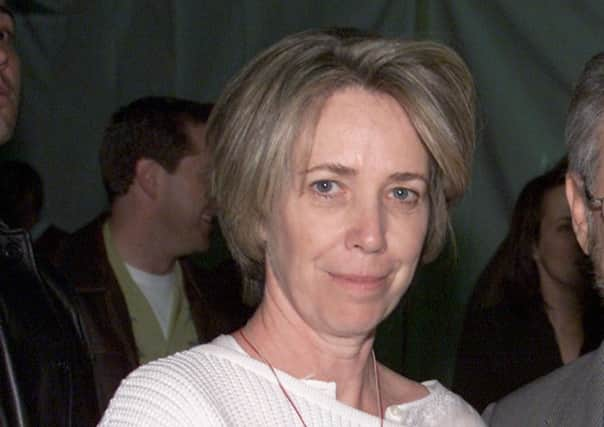Obituary: Melissa Mathison, screenwriter and producer


Melissa Mathison was a film screenwriter and producer whose work most often spoke of childhood experiences for an audience of all ages. The most striking case in point was her script for Steven Spielberg’s huge 1982 hit ET: The Extra-Terrestrial, which earned her an Academy Award nomination for Best Original Screenplay (she lost out to John Briley’s script for Gandhi). Her final, posthumous film credit will come next summer on Spielberg’s adaptation of Roald Dahl’s The BFG, only her second full-length collaboration with the director.
Her own family was also a significant part of Mathison’s public profile and career. Between 1983 and 2004 she was married to the movie star Harrison Ford, a fact that often eclipsed her own achievements, although the relatively small number of scripts she wrote was partly a result of her decision to concentrate on raising the couple’s children on their ranch in Wyoming.
Advertisement
Hide AdAdvertisement
Hide AdMalcolm, a musician, was born in 1987, and Georgia, an actor, in 1990.
Alongside her work with Spielberg, the most significant script Mathison was involved with was that of 1997’s Kundun, directed by Martin Scorsese, a biographical piece about the life of the Dalai Lama.
The film was entirely driven by Mathison. She met the Dalai Lama in 1992 and told him she would like to write about his life, persuading him to sit for interviews. Her producers took the script to Scorsese, a director more associated with violent gangster films, yet whose work is often suffused with reflection upon his own Catholic faith.
He agreed to film it, and Mathison’s interest in Buddhism and friendship with the Dalai Lama continued for the rest of her life.
Born Melissa Marie Mathieson in Los Angeles, Mathison was one of five children and an heir to a modestly sized LA entertainment dynasty.
Her Idaho-born father Richard was the LA Times’ religion editor and later Newsweek’s LA bureau chief. Her mother was Pegeen (nee Kieffer), who was variously the food editor of Fortnight magazine and the founder of Custom Cookery, a business which made gourmet convenience meals. A native Los Angelino, Pegeen had once gone on a date with Clark Gable.
Mathison’s parents divorced in 1969, but their children remained close to each other. Her siblings were Melinda, a Superior Court judge in Ventura County; Mark, a musician; Dirk, a journalist; and Stephanie, also a screenwriter.
It was through family connections that Mathison would get her start in film. Although she studied politics at the University of California at Berkeley, she dropped out when the director Francis Ford Coppola – a family friend whose children, including the actor-directors Sofia and Roman, she babysat for – offered her a job as his assistant.
Advertisement
Hide AdAdvertisement
Hide AdThe first film Mathison worked with Coppola on was 1974’s The Godfather Part II, and her assistant role was one which she returned to on his next film, 1979’s Vietnam-set Apocalypse Now.
It was on this film that she met Ford, and its release came in the same year that she made her script-writing debut. Starring Mickey Rooney and produced by Coppola’s company American Zoetrope, The Black Stallion was a children’s adventure about a castaway stranded on a desert island with only the wild horse of the title for companionship.
It spawned a sequel and a television series, and was nominated for two Academy Awards.
Her next film was ET, which was developed from a lengthy conversation between Mathison and Spielberg while driving 200 miles across the desert to a location for Raiders of the Lost Ark, in which Ford was starring for the director.
Based on Spielberg’s imaginary alien friend he created for himself during his own parents’ divorce, the story of a small boy finding a visitor from another world also touched a nerve with Mathison. She wrote the script in eight weeks, and when she turned it in Spielberg declared it perfect.
With hindsight, it was a perfect synthesis of the writer and director’s own experience and respective abilities which gave the film its heart, and a sense of the hard reality of oncoming adolescence and family breakdown finding release in friendship, adventure and courage.
The film surpassed Star Wars as the highest-grossing movie ever to that point, taking almost $700 million worldwide, surpassed a decade later by Spielberg’s Jurassic Park.
Were it all Mathison had done with her career, it would still have been enough to earn her recognition and acclaim far beyond her life.
Advertisement
Hide AdAdvertisement
Hide AdHer other works were modest, but notable. She wrote The Escape Artist for Caleb (father of the actor Zooey) Deschanel the same year ET was released; Spielberg’s segment of the 1983 anthology Twilight Zone: The Movie; the 1991 television Western miniseries Son of the Morning Star; and Frank Oz’s 1995 adaptation of Lynne Reid Banks’ children’s book series The Indian in the Cupboard.
“I have two little children,” Mathison told Newsweek. “I didn’t want to be missing their childhood while I was away, busy writing about children.”
With no prenuptial agreement in place, Mathison and Ford’s divorce was one of the most expensive Hollywood had seen, estimated to be worth around $90 million to her.
Ford later married the actor Calista Flockhart, whom he met after the couple’s split, but Mathison never remarried. She died of neuroendocrine cancer, and is survived by her children Malcolm and Georgia.